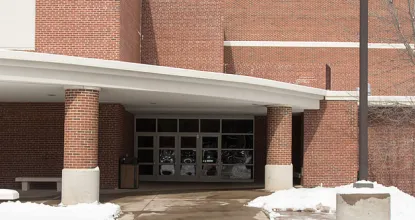All State of Michigan Programs Require:
- High school diploma or its recognized equivalent.
- A FAFSA.
- At least one year of Michigan residency prior to enrollment.
- U.S. citizenship, permanent residency, or approved refugee statue.
- At least half-time enrollment at an approved Michigan college or university.
- The student cannot be in default status on a federal student loan.
- The student must meet Satisfactory Academic Progress (SAP) standards for award renewal.
Below is information regarding the availability of, and eligibility for, State Grant Funds for students from the State of Michigan.
Non-Michigan residents are encouraged to contact their State Educational Offices to determine if they qualify for financial aid assistance from their State. A link to research your State Higher Education Agency can be found here.
Tuition Incentive Program (TIP)
Established in 1987 under the Annual Higher Education Appropriations Act as an incentive program that encourages eligible students to complete high school by providing tuition assistance for the first two years of college and beyond.
For Phase I, the student must declare a program of study, be enrolled in an eligible Certificate or Associate degree program, and take courses within that program of study. TIP Phase I will not cover tuition from courses outside of declared Certificate or Associate degree program. Certificate courses are defined as “at least a one-year training program that leads to a certificate (or other recognized educational credential), which prepares students for gainful employment in a recognized occupation.” Students must meet a Medicaid eligibility history requirement. Eligible students must apply prior to high school graduation (high school diploma or its recognized equivalent). Beginning 2018-19, students must file a Free Application for Federal Student Aid (FAFSA) before the federal deadline.
More information can be found at: Tuition Incentive Program (TIP)
Michigan Achievement Scholarship
Established in 2023. Michigan resident students who graduate from high school in Michigan with a diploma or certificate of completion or achieved a high school equivalency certificate in 2023 or after will be eligible for up to $5,500 per year up to five years, if they attend a Michigan public university.
For 2023/24 students need to have an Expected Family Contribution (EFC) of 25,000 or less to qualify.
Information can be found at: Michigan Achievement Scholarship
Michigan Competitive Scholarship
Established in 1964, (P.A. 208) to foster the pursuit of postsecondary education. MCS is awarded to students showing promise of satisfactory completion of postsecondary study.
MCS program is available to undergraduate students pursuing their first degrees at an approved Michigan postsecondary institution. Students must demonstrate both financial need and merit.
More information can be found at: Michigan Competitive Scholarship
Fostering Futures Scholarship
The Fostering Futures Scholarship, a State of Michigan* program, provides scholarships to young adults who have experienced foster care. The State of Michigan works with individuals, community organizations, and businesses to encourage charitable contributions that go towards Fostering Futures Scholarship funds. Awards are paid directly to the student's institution to assist with unmet need in one or more of the following categories:
- Tuition/fees
- Room/Board
- Books/Supplies
More information can be found at: Fostering Futures Scholarship
Children of Veterans Tuition Grant
The Children of Veterans Tuition Grant (CVTG) provides undergraduate tuition assistance to the children of qualified Michigan veterans who are deceased, totally and permanently disabled, or missing in action (MIA), due to a service-connected injury or illness.
More information can be found at: Children of Veterans Tuition Grant
MI Future Educator Fellowship
Established in 2022. The MI Future Educator Fellowship will offer $10,000 scholarship to up to 2,500 future educators every year.
Information can be found at: MI Future Educator Fellowship
MI Future Educator Stipend
Established in 2022. The MI Future Educator Stipend is a $9,600 stipend to support Michigan’s hardworking student teachers as they continue their journey to being in the classroom full-time.
Information can be found at: MI Future Educator Stipend
